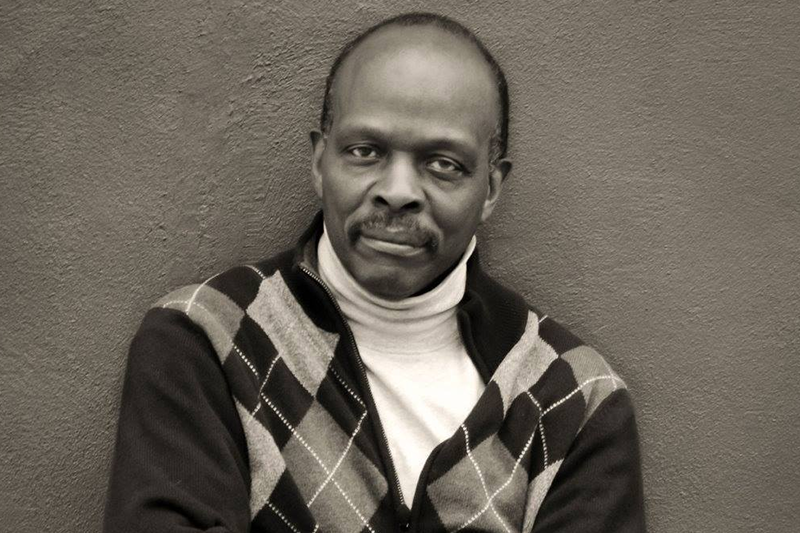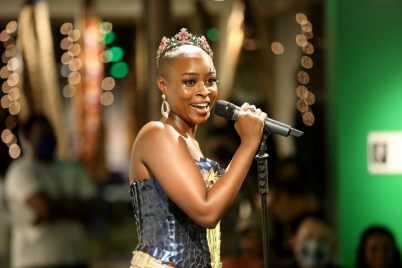Studio@620’s Bob Devin Jones shares his struggles with COVID-19 and his expanding social justice initiative
By J.A. Jones, Staff Writer
ST. PETERSBURG — “I didn’t know at the time that losing your taste buds was a sign; I definitely lost my taste buds,” said Studio@620’s Artistic Director Bob Devin Jones, recalling how he came to suspect he had contracted COVID-19.
Jones said his partner Jamie Howell had gotten tested after a client at work was infected. While he never exhibited any symptoms, he tested positive – but with no apparent signs of the illness, Jones acknowledged neither of them was alarmed.
“We had been washing the hands. So, I didn’t think I was at risk.”
When Jones finally went in to see his doctor, it was due to his loss of taste and sense of smell – and steadily decreasing energy.
“I didn’t have all the other classic symptoms — shortness of breath, a cough, or aches and pains. It was just exhaustion like I never experienced.”
When his own COVID-19 test came back positive, Jones ended up in the emergency room. “And this is a metaphor; from there, it became ‘Bobby through the Looking Glass,'” he remarked, alluding to the Alice-In-Wonderland-like experience that followed. “I entered through that door. Within 24 hours, I was in ICU and had to get a spinal tap. I was never intubated, but I did take oxygen.”
As he relayed the ordeal of his nine-day stay, some of the stark details were familiar: Being swept into a solitary-confinement like situation, unable to use his by-now-dead phone, no communion with the outer world.
And then began the delirium thought to be triggered by medication, isolation, fluorescent lights and broken sleep from the middle of the night nurse visits – what has come to be called “ICU hallucinations.”
Jones recalled that doctors and nurses would ask him, “What’s the date?” His response: “Well, I know it’s December.” It was mid-July.
“I thought I was in Cedars Sinai in Los Angeles. I had invented a full program on the television with Ryan Seacrest and Kelly Ripa talking about Christmas,” he noted.
Another hallucination consisted of “three UCLA students drilling in my head; they told me if I saw the color yellow, I would be able to go home. They were very nice; of course, none of this happened.”
He remembers getting a call from Howell at some point; Jones said he told his partner, “I’d been kidnapped off the streets of St Petersburg.” He also recalled the gradual diminishing of sound, as if the world was fading into the background.
The turning point was when one of his doctors told Jones he could get him on remdesivir – the first and only antiviral drug that is USDA-approved treatment known to work against COVID-19.
Jones said he “broke down” when told he had been in the hospital for over a week; he’d thought he been there no more than two or three days.
Once home, having lost 14 pounds and with some muscle atrophy from the days spent in bed, Jones said it took him three or four days to realize what he’d been through and to feel immense gratitude.
“Prayer works,” Jones stated emphatically. “I am a recipient of what the efficacy of prayer can do,” he added, reiterating that he was thankful for “a lot of good energy” focused in his direction.
Jones expressed disappointment with the administration’s attitude regarding the disease’s impact and referred to Trump’s comments about herd immunity and the numbers of people his administration “saved” versus what an acceptable level of death would be.
“He was talking about the death of Americans as some ticker tape number.”
Having experienced COVD-19 personally and seen its effects, while Jones said he wasn’t sure of how the administration could have handled the crisis, he said that as for how it is being handled, “That’s not it. Not only having been through it but just watching the devastation.”
Now that he’s back on his footing, Jones’ focus is on the country and what’s next for the studio, acknowledging that it’s impossible to know what the ultimate fallout after COVID-19 would be.
“This pandemic out-Stephen Kinged Stephen King,” Jones sardonically referred to the famed horror writer. But he also insisted that, for Studio@620, at least, inaction wasn’t the answer. “We can’t sit shiva, waiting for the world to change or die. We’ve got to do something. So, that’s what we’ve been doing.”
In the short term, that means continuing all the regular programming in the virtual realm, including poetry slams, reading and social and cultural conversations. Select offerings in the space included the “Celebration of Herb Snitzer” retrospective on the famed photographer and St. Pete local that continues throughout the fall.
Recently, Jones sat down with friends and colleagues to discuss expanding the social justice work that has always been a grounding force in the studio. Since its inception 16 years ago, the Studio@620 has convened regular social justice roundtable discussions.
The studio has also hosted “Journeys in Journalism” with Pinellas County Schools for 14 years, offering young scholars a place to discuss and portray issues impacting their lives through their writing, photography and video.
Jones is ready to do more, recalling that the current Studio Honors Award used to be called the Social Justice Pioneer Award. While St. Petersburg is the home to a plethora of great art, the Studio@620 is the only space that offers a home to all art forms from dance to theater, to visual arts, spoken word, and literature – while also offering classes and all at what Jones reminded us, is an “aggressively affordable price.”
With ticket prices at other theaters easily ranging from $20 to above $40 regularly, Studio@620 has maintained a standard $10 ticket price for most live events and five dollars for many regularly scheduled offerings.
The Social Justice Initiative of Inclusion will be an umbrella under the entire rubric of the Studio@620, Jones affirmed. He will be continuing to seek and offer space for community-led projects that place the effort toward inclusion in community hands.
Projects like recent small-group ballet classes offered free to community youth by Bad Boys of Ballet’s Marquis Floyd – also of St. Pete’s Kali Kali Dance Company – are an example of community-led social justice contributions. Jones hopes more community-led initiatives will come to light when COVID retires.
Because of the isolation and loss that the current COVID crisis has wrought, Jones knows the studio must continue its work and is open to ideas.
“We’re uniquely positioned to do something around those ideas of social justice and inclusion that are not just solely performance-based.”
For more information on how you can become part of the Studio@620’s mission, visit www.thestudioat620.org.








